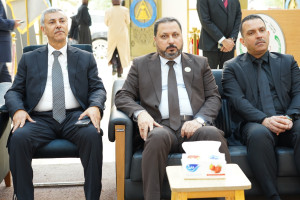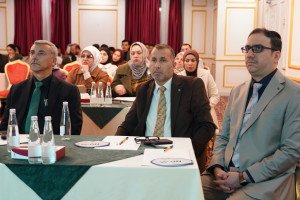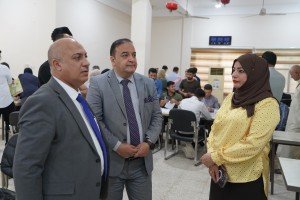
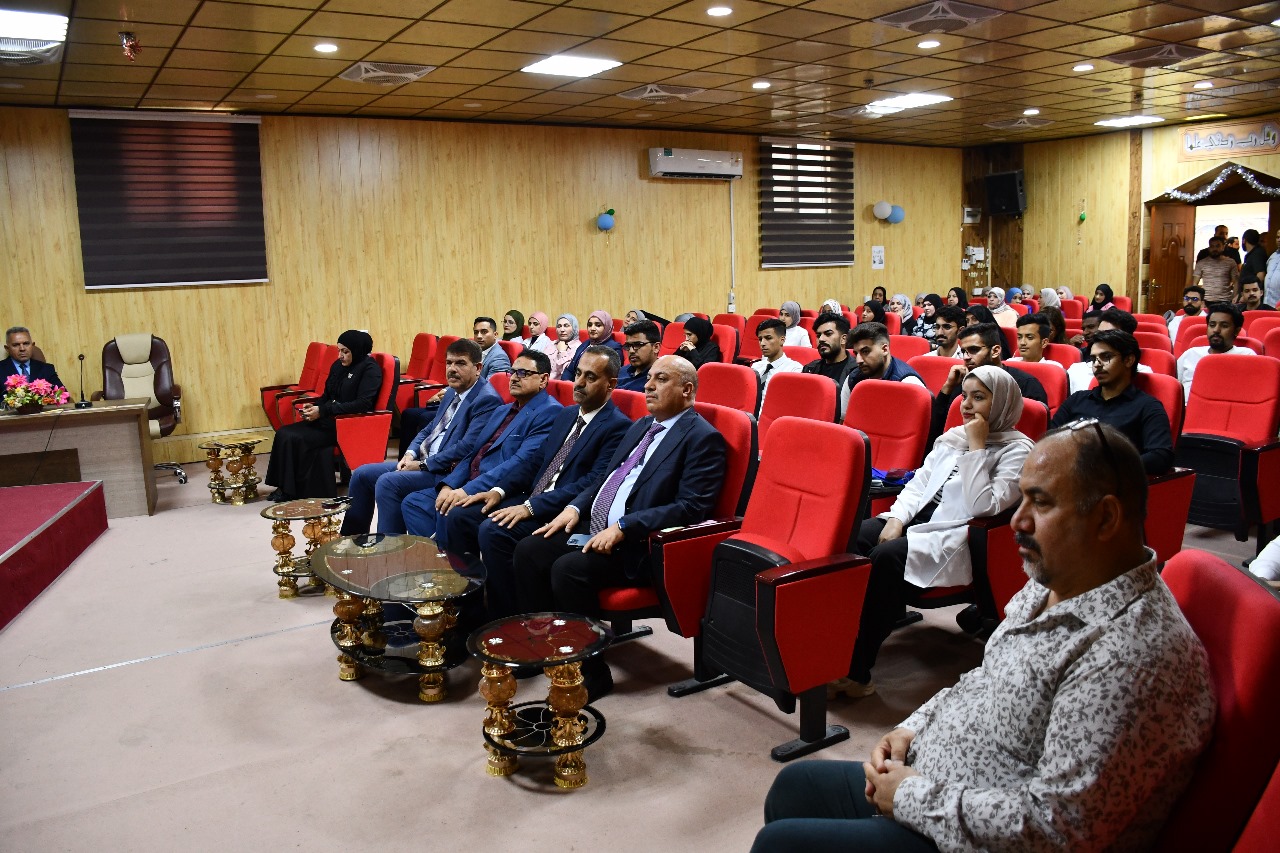
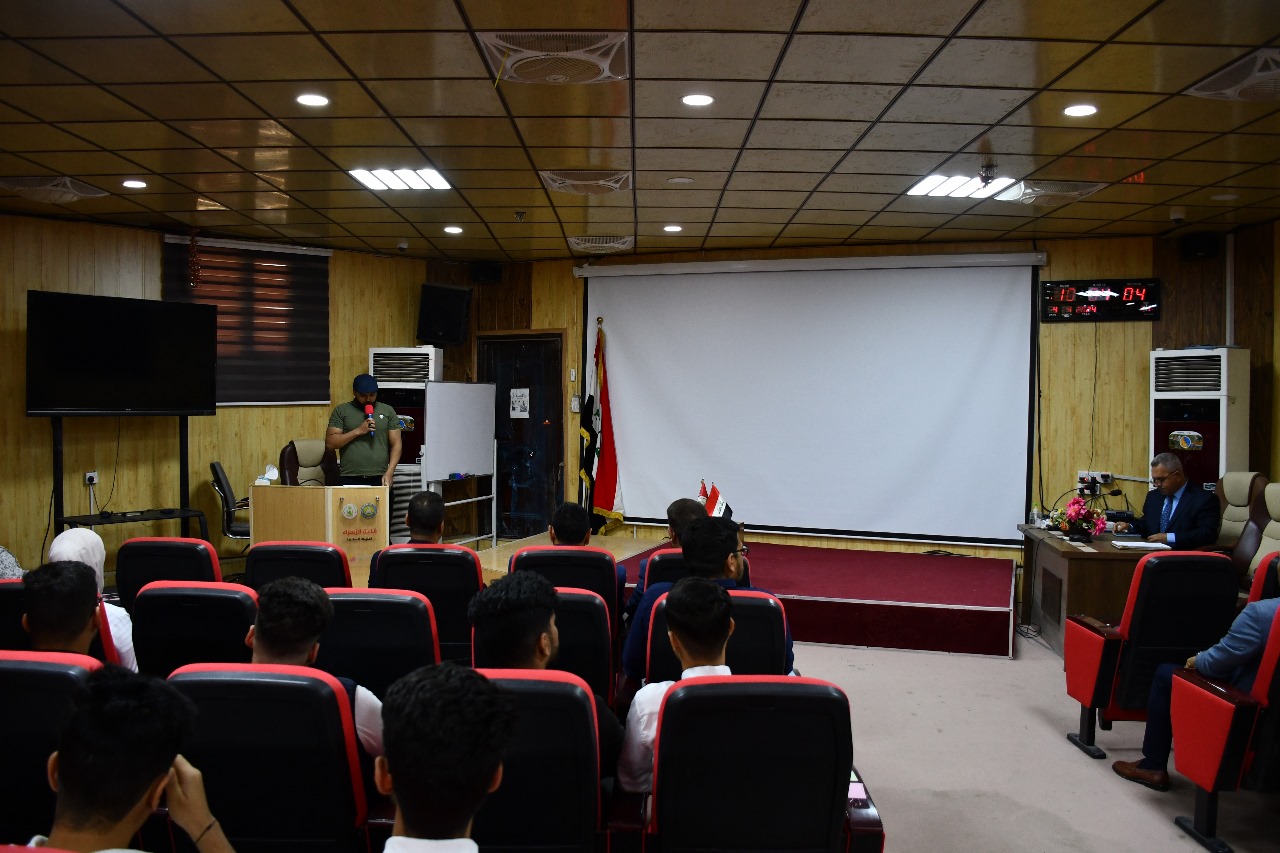
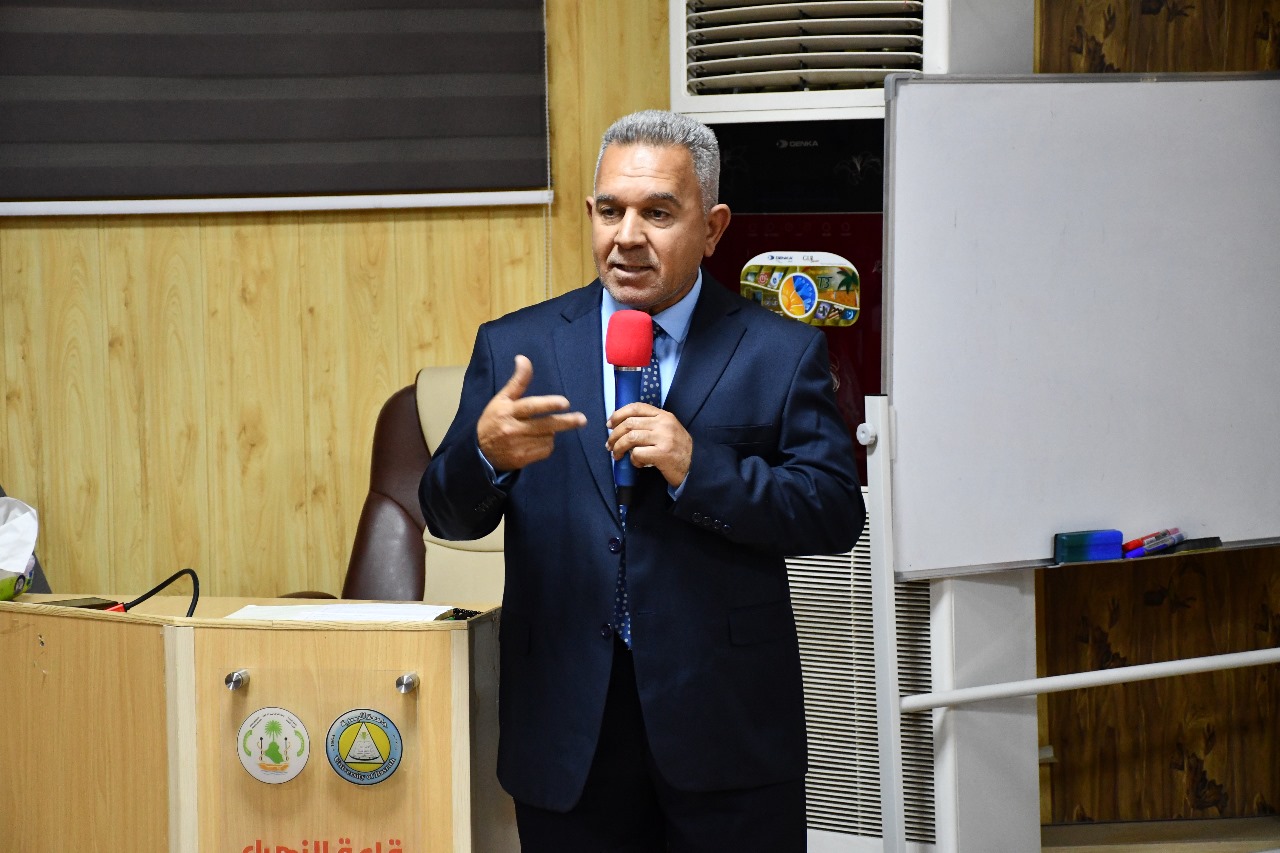
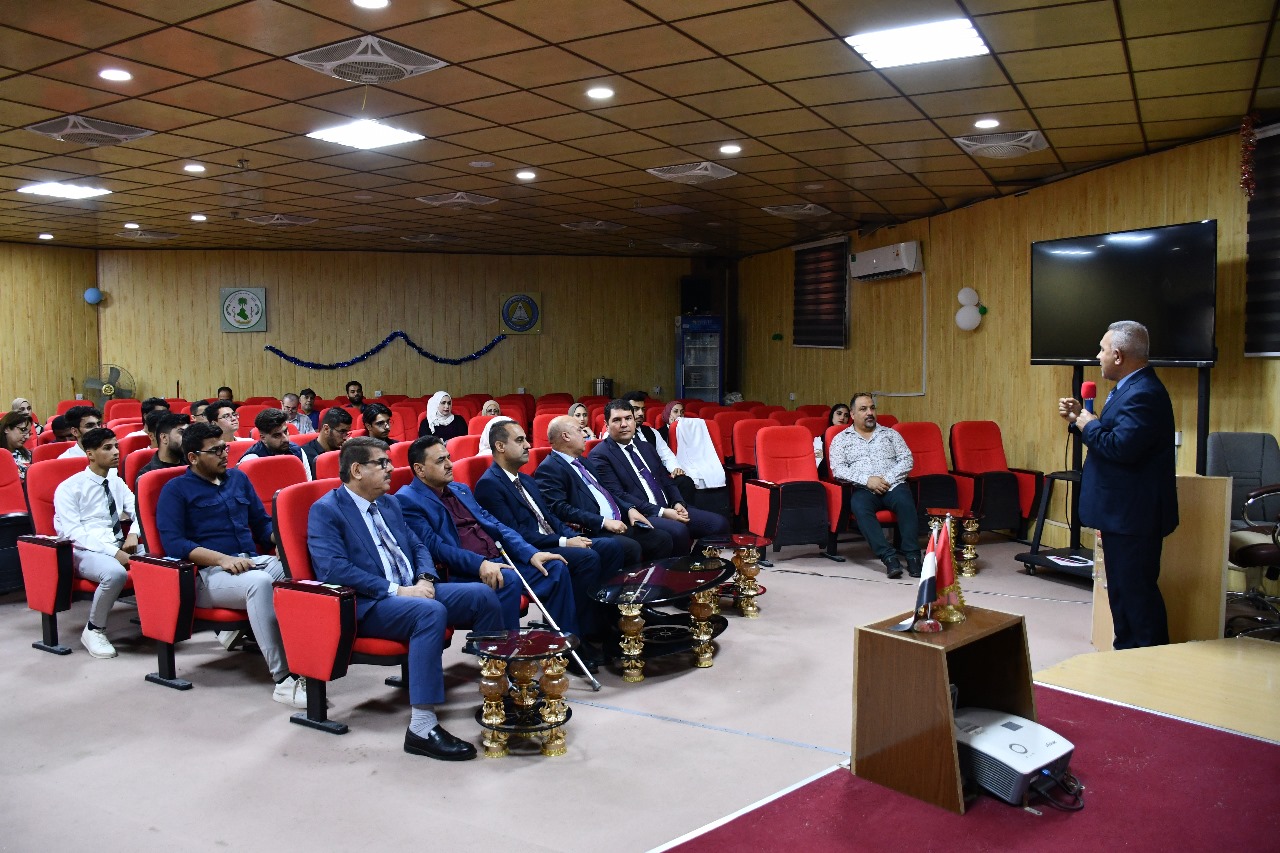
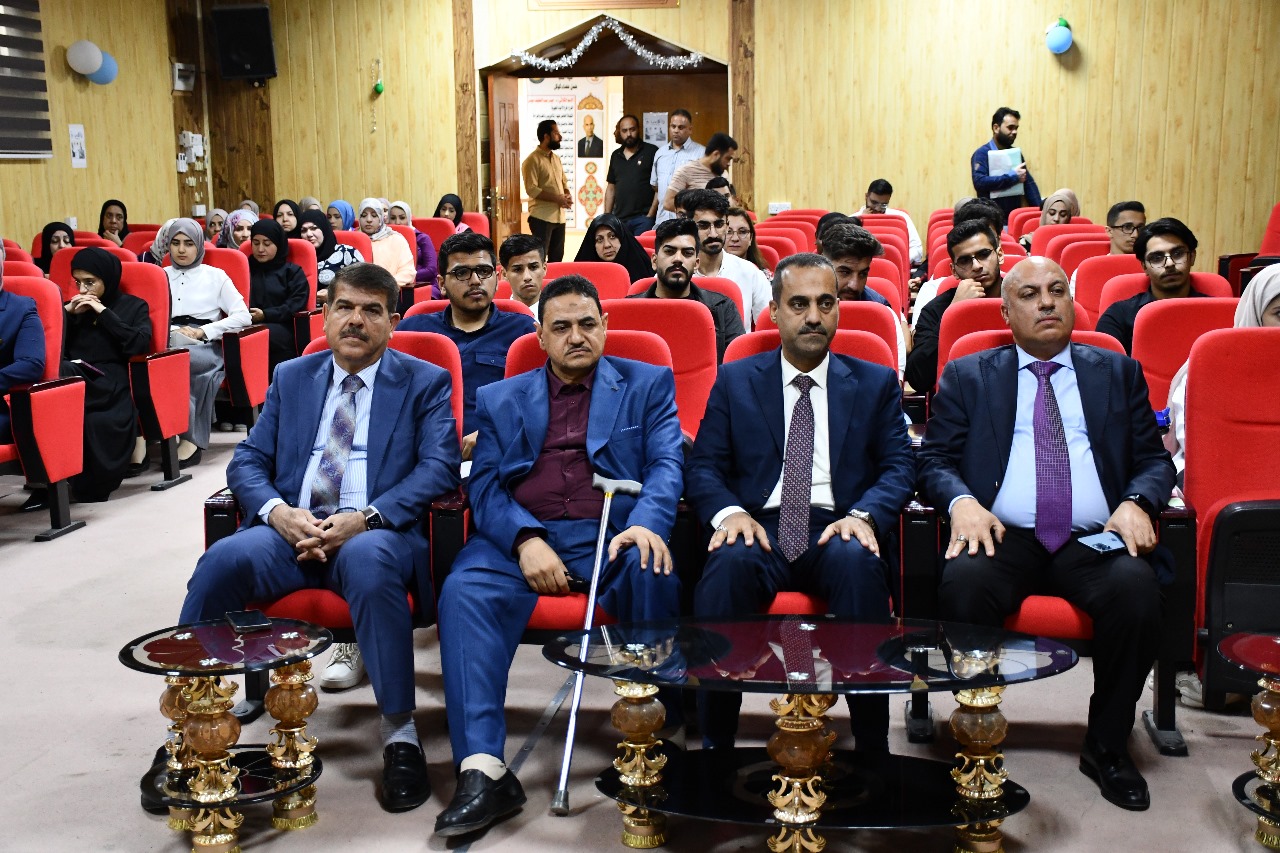
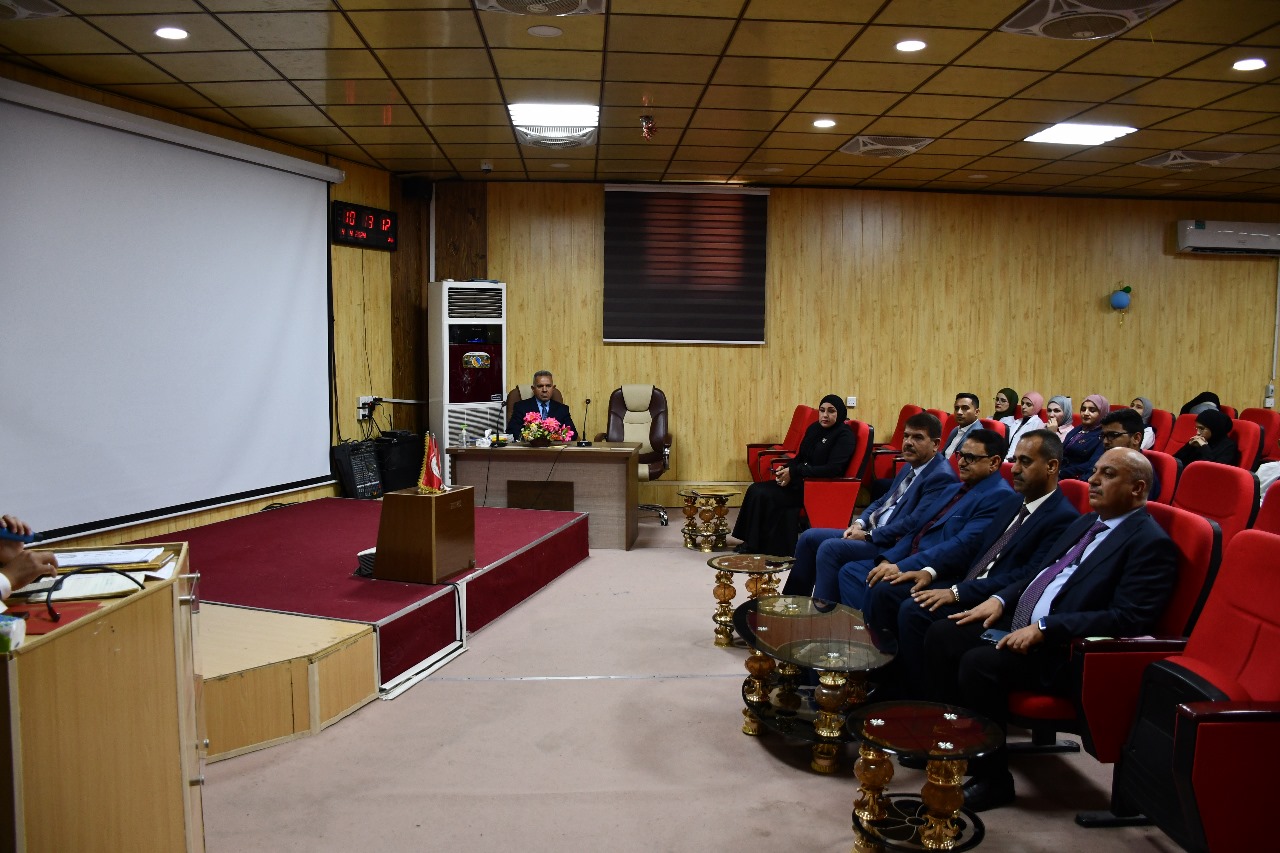
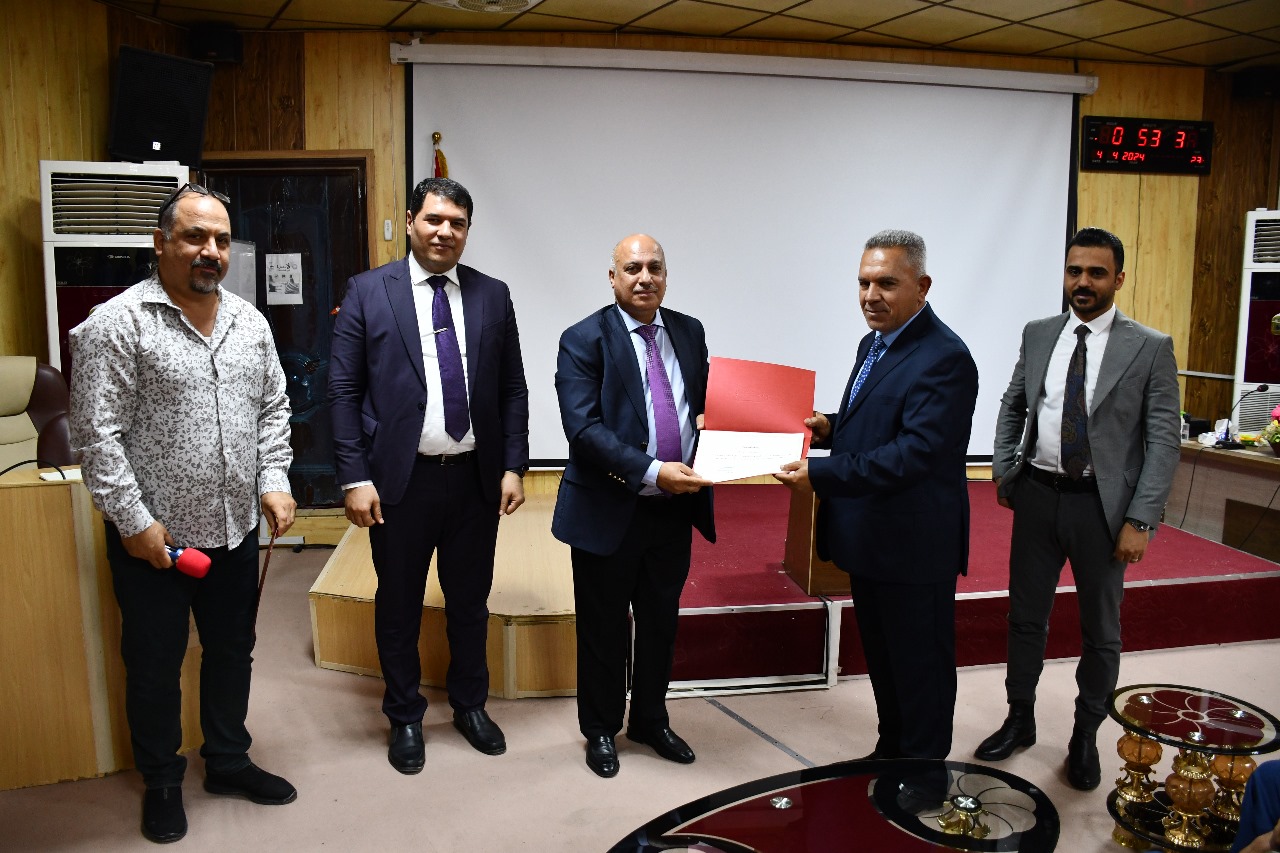
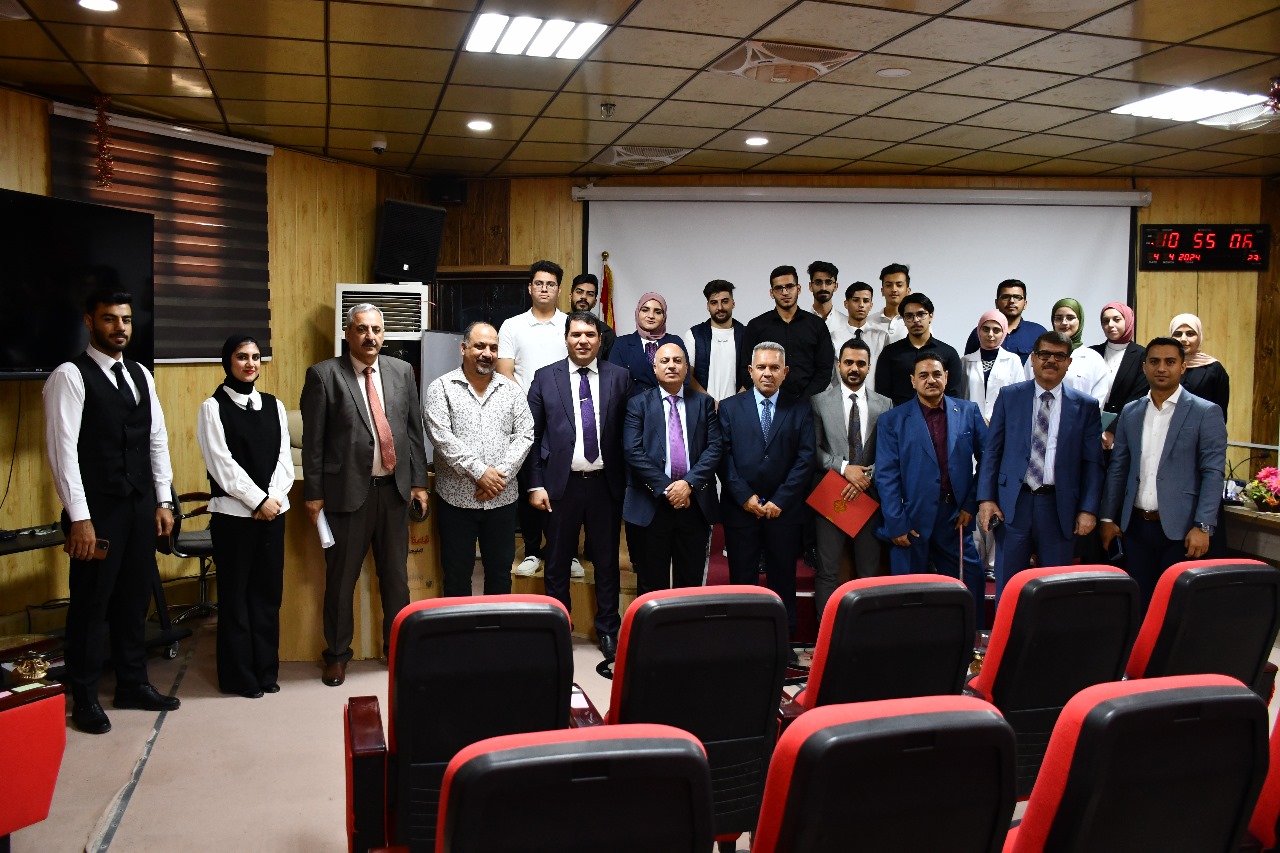
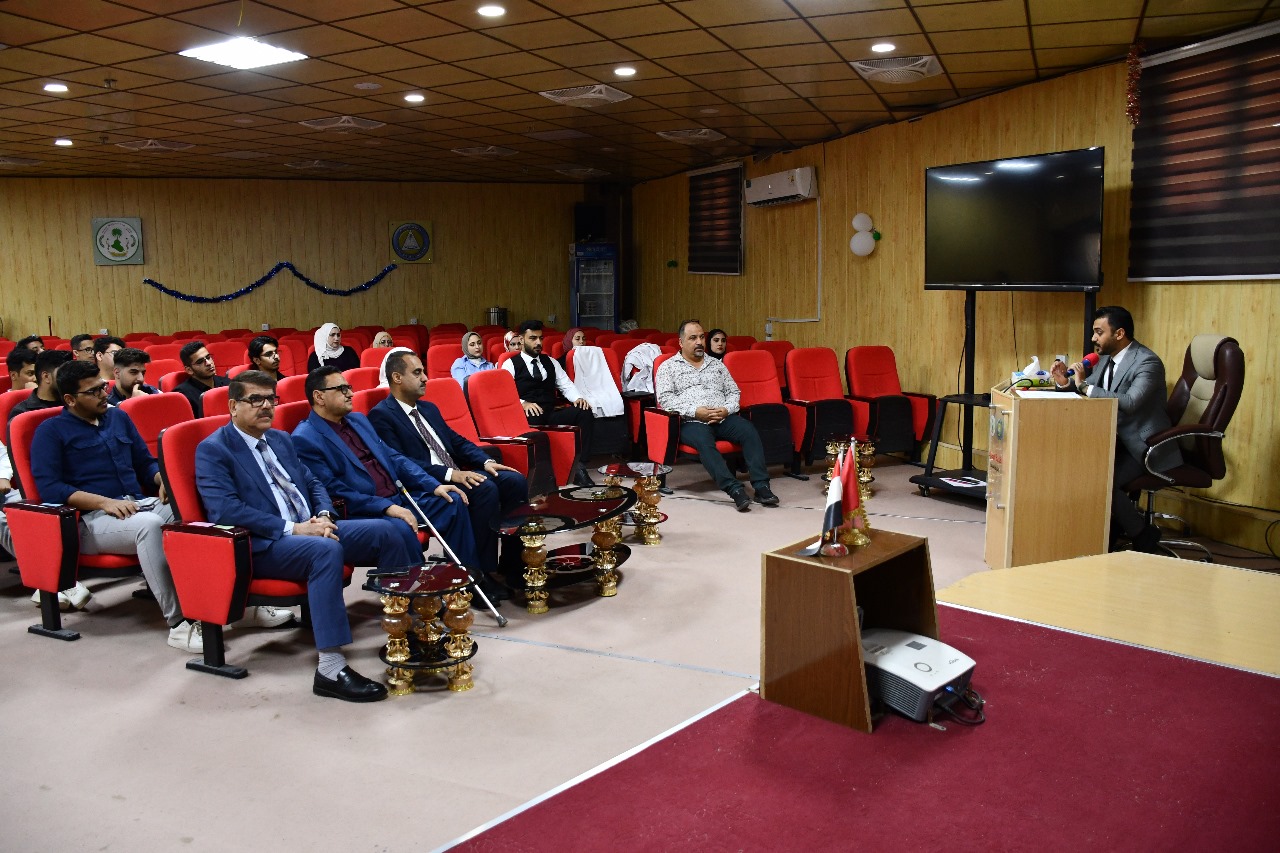
The Scholarships and International Relations Unit at the College of Medicine, in cooperation with the Continuing Education Unit and the Student Activities Unit, held a scientific symposium on developing legal skills within the National Strategy Program.
Jurist Saif Mazid Hamid lectured at the symposium on student laws and discipline to improve student behavior. While Professor Majid Shinati Nimah, member of the Accountability and Justice Office in Basrah, discussed the laws protecting doctors, teachers, and employee laws.
The symposium touched on the spread of the phenomenon of blaming and reprimanding doctors in the media despite the distinguished role that the doctor plays in the current circumstances, which made remaining silent about it undesirable because it leads to frustration in the hearts of doctors from working and hinders them from sharing their advanced scientific experiences, as two interests must be reconciled. The doctor's right to medical diligence, and the patient's right to treatment, so that doctors and scientists can continue on their path towards research and experimentation.
The symposium discussed the importance of responsibility, as it, above all, does not only fall within the scope of the law, but rather returns to conscience, conscience, and internal motivation. Therefore, it is the case of a person who violates a rule of morality, which is known to be complementary to the legal rules and which is based on a purely subjective basis. It is a responsibility before God and before conscience, and this is Responsibility is achieved even if there is no harm, but legal responsibility is achieved unless there is harm and this harm is caused by someone other than the responsible person.
The symposium also recommended the necessity of dealing with medical error objectively and searching for causes and solutions, not trying to place the finger of blame on people and believing that the wrongdoer will be punished, and seeking to legislate the health system as it is the best solution at the current stage to reduce the number of errors and activate the law protecting doctors, and it also requires directing an opinion. The general effort is to restore confidence in Iraqi doctors and their scientific capabilities at the present time to avoid wasting public money in reducing the proportion of patients traveling for treatment outside Iraq.


